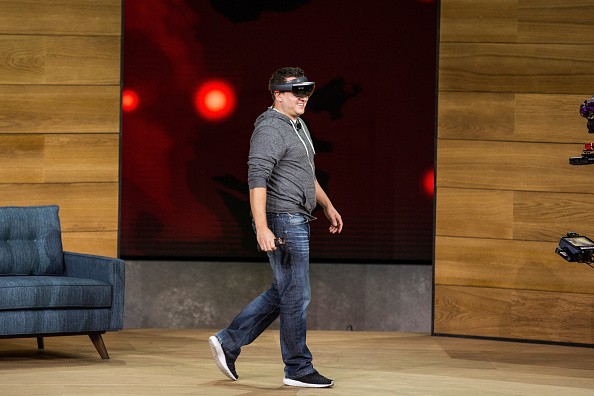Microsoft has recently demonstrated their HoloLens augmented reality headset once again along with Windows 10 updates during the Surface event in New York which astonished some fans but still left some skeptics.
Megan Saunders, the general manager at Microsoft, was the one who showcased what the HoloLens can do besides the features they have already revealed several months back. They also showed how it was integrated with the new Windows 10 versions.
One of the interesting demos was when Saunders used the Microsoft HoloLens for 3D drawing through the Windows 10 Microsoft Paint app. There was also a HoloLens demo that allowed users to see in AR a furniture product before they decide to purchase it, Polygon has learned.
Microsoft CEO Satya Nadella said: "You see the world and in the world you see virtual objects and holograms."
While everyone else is busy with virtual reality headsets, Microsoft is betting big with AR. Oculus Rift and the HTC Vive are both competing in the VR market but they still have a narrow audience considering the cost of their products.
The Microsoft HoloLens is not cheap either but some expect it to drop prices when the cost for producing it also drops. Saunders said that the Microsoft HoloLens will help Windows 10 users to move their content from the real world to the digital world.
There was also a demo where people can be transported to a virtual world using the Microsoft HoloLens, BGR reported. Of course, it is still different than experiencing VR where people enter the said world while AR allows the world to be populated with virtual objects instead.
Saunders also demonstrated Holotour which uses the HoloLens to bring people to other cities in the world. He added that it was designed for using the HoloLens with the Windows 10.
There are also several third-party VR headsets that will be available for the Windows 10. They are manufactured by HP, Lenovo and Dell which could hopefully rival the Oculus Rift and the HTC Vive.
Microsoft HoloLens is still expensive at the moment and a consumer-grade version could still be in development. The third-party VR headsets are expected to start at $300 which is cheaper than the mainstream ones.



























